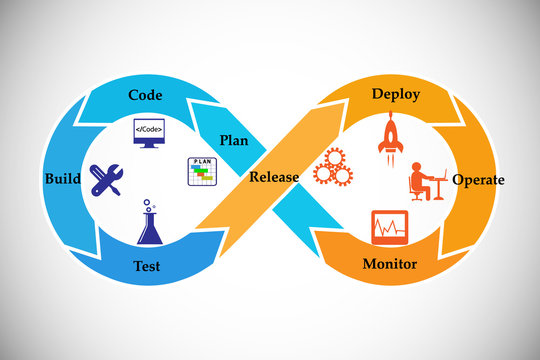Introduction:
In today's fast-paced digital landscape, where organizations
strive to deliver software quickly, efficiently, and with high quality, a new
approach has emerged: DevOps. This revolutionary concept brings together
development and operations teams, fostering collaboration, streamlining
processes, and enabling organizations to achieve unprecedented levels of
agility. In this blog post, we will explore the essence of DevOps in simple
terms, understanding its benefits and how it empowers teams to thrive in the ever-evolving
technological landscape.
The Essence of DevOps:
DevOps, short for Development and Operations, is a
philosophy that promotes close collaboration between software development teams
and IT operations teams. Traditionally, these two groups worked in separate
silos, causing communication gaps, delays, and a lack of shared responsibility.
DevOps breaks down these barriers, emphasizing the need for continuous
collaboration, communication, and integration throughout the software
development lifecycle.
Benefits of DevOps:
Faster Time-to-Market: DevOps promotes automation, allowing
organizations to automate repetitive tasks, testing, and deployments. By
reducing manual effort and eliminating bottlenecks, software can be delivered
more frequently, enabling businesses to stay ahead of their competition and
respond to market demands swiftly.
Improved Collaboration and Communication: DevOps encourages
cross-functional teams, where developers, testers, operations staff, and other
stakeholders work together towards a common goal. This close collaboration
breaks down silos, fosters shared responsibility, and enhances communication,
leading to faster problem-solving and increased efficiency.
Enhanced Quality: With DevOps, quality is not an
afterthought. Continuous Integration and Continuous Delivery (CI/CD) pipelines
are employed, enabling automated testing and early bug detection. By catching
issues in the early stages of development, organizations can ensure
higher-quality software, reducing the likelihood of critical issues in
production.
Scalability and Flexibility: DevOps provides the ability to
scale infrastructure and applications as needed. By leveraging cloud
technologies, organizations can dynamically allocate resources, respond to
varying workloads, and rapidly deploy new features or updates, all while
maintaining stability and performance.
Culture of Continuous Improvement: DevOps promotes a culture of continuous learning and improvement. Through regular retrospectives and feedback loops, teams identify areas for enhancement, address bottlenecks, and implement iterative improvements. This iterative approach ensures that organizations adapt to changing business needs and stay ahead of technological advancements.
Empowering Teams, Enabling Agility:
By embracing DevOps, organizations empower their teams to take ownership, collaborate effectively, and deliver software with agility. Teams are no longer limited by rigid processes or bureaucratic handovers. Instead, they have the autonomy to experiment, innovate, and make data-driven decisions. DevOps empowers teams to adapt quickly to market changes, iterate rapidly, and respond to customer feedback, ultimately driving business success.
Conclusion:
The DevOps revolution is transforming how organizations approach
software development and operations. By fostering collaboration, automating
processes, and prioritizing continuous improvement, DevOps empowers teams to
deliver high-quality software faster, adapt to changing market demands, and
thrive in the digital age. Embracing DevOps is not just about tools and
technologies; it's a cultural shift that enables organizations to achieve
agility, innovation, and sustainable growth.
So, are you ready to join the DevOps revolution and empower your team for success?















COMMENTS